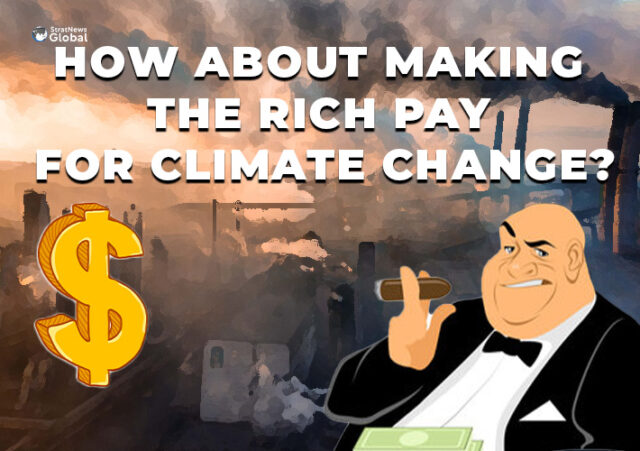Even by the usual gloom and doom standards of the climate debate, a warning from the U.N. Climate Change Executive Secretary Simon Stiell, ahead of International Earth Day, would have raised hackles in the developing world. His point was that blame shifting by the Global South was not a strategy to address the climate crisis. He also claimed that “Humanity has two years to save the world”.
Stiell was referring to the collective stance of developing countries like India, China, and Brazil, who say a blanket ban on carbon emissions, being debated in Europe, would be unfair to them, since they need to address issues of extreme poverty. Developing and poor countries have argued for long, that they cannot be blamed for the climate crisis since the rich countries have contributed to much of the global warming that has taken place, and are now seeking to avoid responsibility and make the poor of the world pay.
A report in the Guardian newspaper, done in collaboration with Oxfam, is highly educative in that context. It says, “The richest 1% of humanity is responsible for more carbon emissions than the poorest 66%.” Describing them as the “Polluter elite”, the report says “people who have the ability and resources to leave more carbon footprints with their private jets, yachts, and extravagant lifestyles,” are the ones to blame.
The report ‘calculates that the emissions from the 1% alone would be enough to cause the heat-related deaths of 1.3 million people over the coming decades.’ Furthermore, according to their 2019 data, ‘high-income countries (mostly in the global north) were responsible for 40% of global consumption-based CO2 emissions, while the contribution from low-income countries (mostly in the global south) was a negligible 0.4%.’ Due to the uneven wealth distribution between the global north and south, the default responsibility falls on the shoulders of the bourgeois people of the west.
Therefore, developing countries like India and China have expressed their disagreement with the European Union’s blanket ban carbon tax on every country. But there’s more. According to the Forbes 2024 List, the top 5 countries with the most number of billionaires are the USA (813), China (406), India (200), Germany (132) and Russia (120). Oxfam International has pointed out that ‘A billionaire emits a million times more greenhouse gases than the average person.’
This simply dictates that, if there’s a limited amount of carbon footprint allotted per person, these billionaires with their extravagant lifestyles are stealing away the shares of the carbon footprint from the average population.
Therefore, a blanket ban carbon tax, not on countries, but on billionaires is necessary. This will not only solve the concern of developing countries like India and China, but it wil also address the West’s concern over, the global south’s responsibility on reducing carbon footprints.
Since these billionaires and corporations are accountable for carbon footprints, these individuals should be paying equivalent climate tax to balance out the existing disparity. Besides, if the billionaires and their big corporations are held accountable, a fair share of resources and opportunities can be expected for the rest of the world. In the end, it’s the poorest of the poor in these global south countries that end up paying the price of climate change caused by the rich. According to the United Nations, 91% of deaths related to extreme weather occur in developing countries.
This year many major economies are heading into elections. It may be the perfect time for people to demand of their new governments, in both global north and south, to focus on bridging the climate inequality amongst their own population by ‘climate taxing the rich.’





